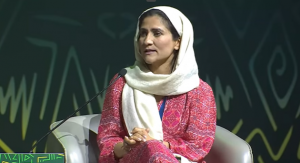
Africa, Featured, Health, Innovation, TerraViva United Nations

An artist’s impression of the completed Centre of Excellence in Kigali. The center supported by IRCAD is expected to assist with the training of surgeons throughout the continent with minimally invasive surgery training. Credit: Supplied
– In a newly established Centre of Excellence located in Masaka, a suburb of the Rwandan capital city, Kigali, an expanded lab, complete with innovative facilities and specialized instruments, is now giving surgeons a conducive environment to simulate how to perform minimally invasive surgeries.
French-based Institute for Research into Cancer of the Digestive System (IRCAD) played a major part in this initiative, the first ever on the African continent.
According to medical experts, in comparison to traditional open surgery, often requiring the patient to incur invasive large incisions, minimally invasive surgery procedures allow doctors to insert a camera through a small incision, or sometimes no incision at all.
Dr Alexandre Hostettler, head of the Surgical Data Science Team at IRCAD, pointed out that harnessing robotic and artificial intelligence is critical to enhance the capability of surgical treatment in Africa.
Robot-assisted minimally invasive surgery denotes the surgical technique where the robot-applied laparoscopic tools are remotely controlled by a human operator at a console.
“Performing surgeries using robotic assistance can be more comfortable for surgeons, as they can sit at a console rather than standing for extended periods, reducing physical strain,” he told IPS.
The center also aims to train medical doctors from across Africa about how to perform surgery using very small incisions, allowing the introduction of an endoscope connected to a camera with a magnified image leading to a very precise dissection of the operated organs.
Prof Jacques Marescaux, President and Founder of IRCAD, is convinced that the new center represents a turning point in surgical education and practice in Rwanda and sub-Saharan Africa. “The center is a catalyst for all African surgeons and computer scientists,” he said in an exclusive interview with IPS.
At the same time, Rwanda is striving to build an integrated medical service system that provides high-quality services and is efficient in medical facility management. Rwandan President Paul Kagame believes the key task is to keep investing significantly in public health infrastructure.
“The [new] Centre of Excellence is not serving Rwanda alone. It is serving Africa. It is also improving and taking beyond the talent we have in Africa to a much higher level,” Kagame said at the inauguration of the new facility, for which operations and running costs will be fully funded by the Government of Rwanda and IRCAD France.
Some medical experts observe that despite its numerous advantages over traditional surgery, especially the shorter hospital stay and less blood loss with lower overall costs, the new robotic surgery is not widespread in low- and middle-income countries, especially in Sub-Saharan Africa.
In addition, some researchers argue that computer-assisted navigation and robotics are sometimes challenging to use by perioperative nurses when caring for patients undergoing these procedures.
Dr Christine Mutegaraba, a surgeon from one of the private clinics in Kigali, told IPS that providing appropriate training remains critical for specialized medical practitioners to rely on these robotic surgery systems.
“Huge investment is also needed to ensure that clinics and other specialized referral hospitals are equipped with devices needed to perform these kind of surgical techniques,” Mutegaraba said.
According to the data from Rwanda’s Ministry of Health, laparoscopic was the sole type of minimally invasive surgical technique used by few medical practitioners across the country, and there wasn’t any formal training in place to develop the technical skills for additional doctors.
With the inauguration of the new center, both officials and health experts see hope in developing and advancing this technology, where specialized medical doctors will now be able to perform various kinds of surgeries.
While the introduction of innovative solutions in the health sector remains exciting for health officials, Marescaux points out that the new robotic technology is set to provide patients with high-quality medical services.
“We are working on building the largest team combined with computer scientists and surgeons in Africa,” he said.
Estimates by IRCAD show that access to surgical care in Low- and Middle-Income Countries (LMICs), such as countries in Sub-Saharan Africa, is still extremely limited, which causes a burden on the health care systems.
It said thanks to the center, African surgeons will not have to travel across the continent to receive the best training in surgery since it will be available right at home.
The 2022 World Health Organization’s study shows that strong measures are also needed to boost the training and recruitment of health workers in Africa.
Whereas the UN agency recommends that African countries significantly increase investments in building the health workforce to meet their current and future needs, new findings show that that the region has a ratio of 1.55 health workers (physicians, nurses, and midwives) per 1000 people.
Experts now believe that robotic technology will also lessen surgeon’s workload by efficiently managing the patient flow.
“As technology evolves, robotic systems are likely to incorporate more advanced features, integrating AI, augmented reality, and other technologies to aid the surgical process,” Hostettler said.
IPS UN Bureau Report


